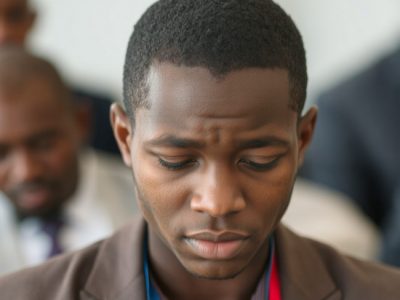Bloody Friday: Remembering the UN House Bombing in Abuja

One Year Ago Today: UN House Bombed in Abuja
I woke up that morning to the sound of a distant blast. “Was that a bomb?” I asked my husband. We shrugged it off as thunder in the rain. Then the phones rang—friends and colleagues from around the world asking if we were safe.
I had worked in the UN common house for two years. That morning, I learned that one of my closest friends was on his way to work when it happened. Another called, shaken, searching for missing coworkers.
The Morning of Terror
A suicide bomber struck just as the exit gate opened. He rammed the gate, detonated, and destroyed the ground and first floors. The UN clinic—just behind—was spared, but security staff died instantly.
My friends on the third and fourth floors survived. One officer recently moved downstairs to the ground floor. She was spared only because she was attending a meeting on one of the upper floor when the attack hit.
Eighteen people died. A dozen more were laid up in the hospital for weeks. Survivors had to undergo grief counseling, PTSD and manage survivor’s guilt.
Living With Fear
Nigeria’s north is a Muslim-Christian mix. Yet Fridays terrify me. As worship ends, tensions rise. School runs feel riskier. I pray on my drive home. Staff working from my home office glance at the clocks. We stay close to home on Fridays.
Security advisories warn non-Muslims and outsiders to steer clear of crowds on Fridays. Avoid revealing dress, alcohol. Do anything out of the norm and risk trouble.
A Blow to Development
This wasn’t just an attack on a building—it was an attack on northern Nigeria’s future. Over 65% of UN aid in Nigeria funds health and education in the north. These people live and die for more opportunity.
I traveled with the UN across Katsina, Borno, Sokoto, Kaduna, andKano. I saw warmth and hospitality. Hugged and welcomed with “Salaam alaikum.” Women shared their meals with us. They trusted that we were there to help.
In the city, we stood out—white UN jeeps, foreign faces. We felt like targets. And every Friday, I braced for danger.
Remembering the Dead: A Roll-Call
UN staff were everyday heroes. They left home, unaware it would be their last morning. They worked to improve lives—and paid the ultimate price.
The names of the slain are: Abraham Osunsanya, Stephen Obamoh, Felicia Nkwuokwu, Iliya David Musa, and Ahmed Abiodun Adewale-Kareem. Elisha Enaburekhan, Dr Edward Dede, Johnson Awotunde, Musa Ali, Rahmat Abdullahi, and Ingrid Midtgaard.
Others are Sunday James Ebere, Ndubuisi Bright, Kate Demehin, Caroline Michael, Sunday Omelenyi, Yakubu Garuba, Abiodun Cyril Adeseye, Patricia Ekwetinge, Joy Audu, and Paul Waziri.. They will never be forgotten.
A Call to Faithful Action
This attack and others like it demand outrage and action. Good Muslims worldwide must condemn this evil. These killers betray the peaceful teachings of their faith.
Never Forget
The blood of the slain must speak. May their souls rest in peace. And may we, the living, hold the torch for the victims. May their death drive us to demand justice, resilience, and unity—faith above fear.
Read about the Christmas Bomber
